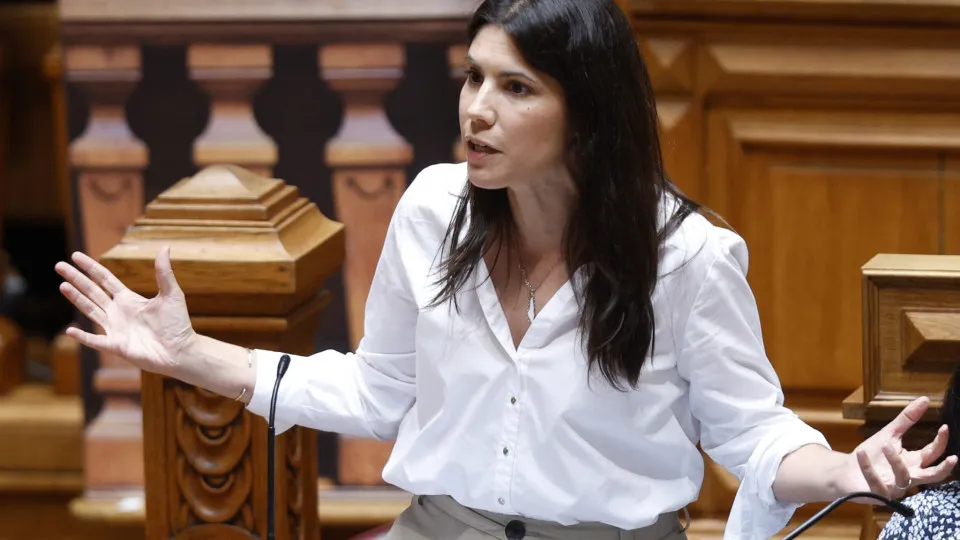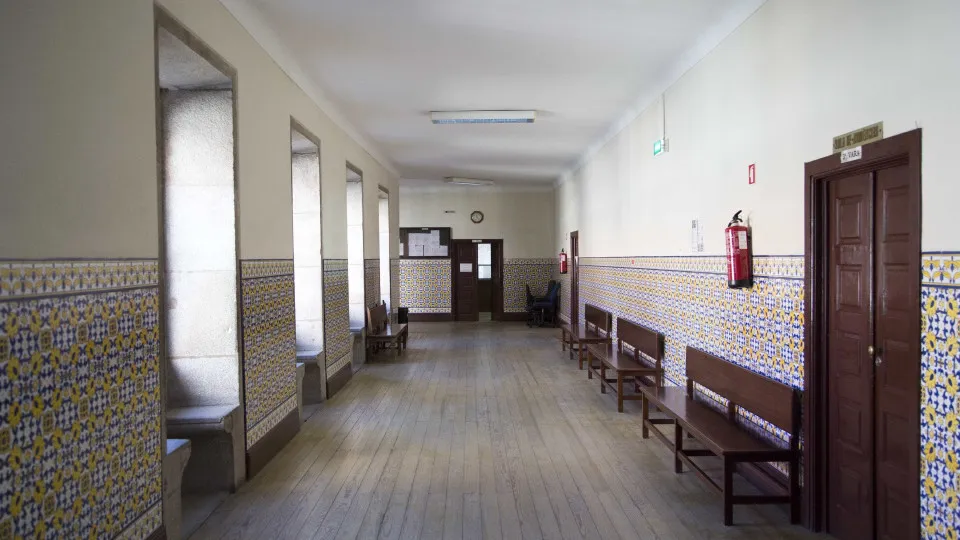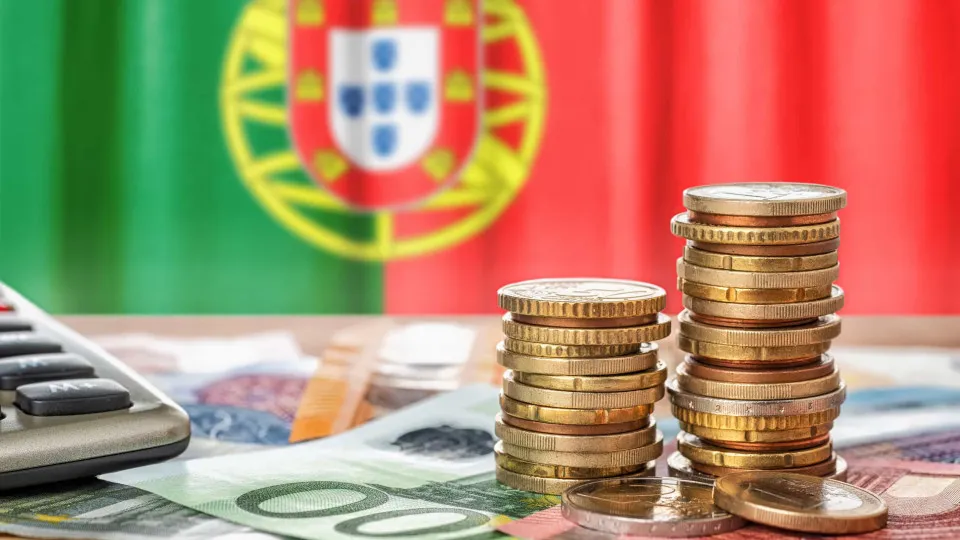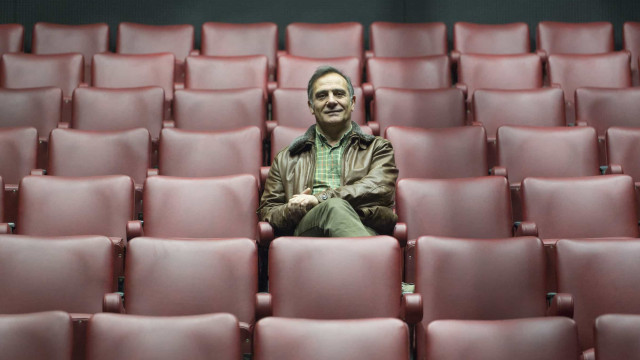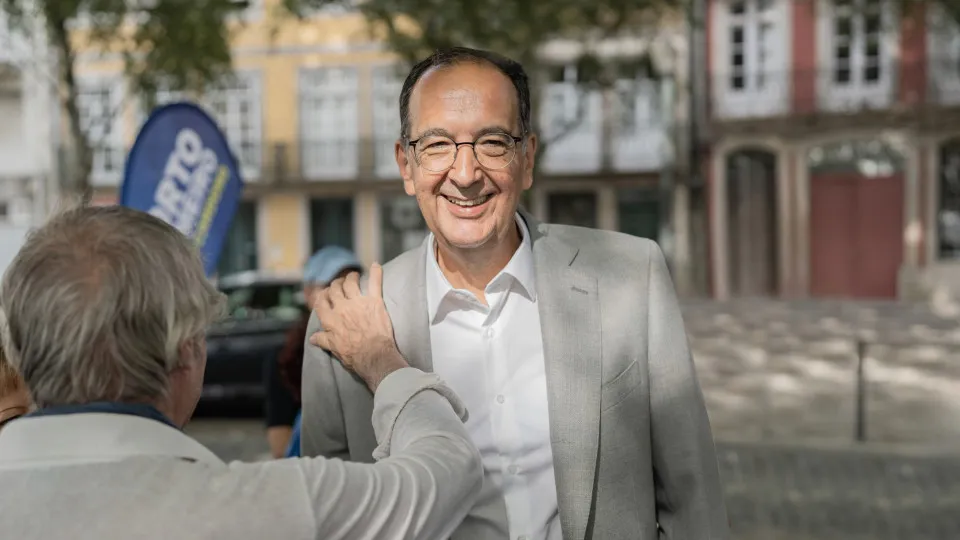
Formerly serving as the Mayor of Porto from 1999 to 2002 for the Socialist Party, Nuno Cardoso contributed significantly to the city’s transport strategy and the design of the Porto Metro network. In 2013, Cardoso made another bid for office but was defeated by Rui Moreira. Now, Cardoso is running as an independent candidate under the movement ‘Porto Primeiro’.
A poll conducted by Multidados at the end of July has highlighted Cardoso as one of the most frequently mentioned names among Porto residents when asked about the best candidate for the mayoral seat, alongside Pedro Duarde and Manuel Pizarro.
Proposing numerous solutions for the city’s mobility issues, from school transport services to buses every five minutes, Cardoso outlines plans for a public interest cooperative to alleviate housing dilemmas. We sought insight into Cardoso’s vision, over two decades on, for rejuvenating Porto.
After 24 years, I feel the city has lost its momentum. We should be progressing to a higher level.
You’ve served as an advisor, vice-president, and mayor of Porto, playing a crucial role in the Porto Metro project. What drives your decision to run for mayor once more?
The drive stems from my extensive involvement in previous projects. My impact on the city is substantial. I also contributed to resolving the region’s water issue as the inaugural president of Águas do Douro e Paiva, implementing a new water supply network from Felgueiras to Ovar. So, my mark is significant, and I possess a strong capacity for executing ambitious projects.
I was deeply involved in the technical and strategic leadership of the Porto Metro project, before it was formally an established company—back when it was merely a utopian idea few in Porto believed in. Back in 1990, I initiated the strategic development, leading to a government mandate in August 1993 under Cavaco de Silva to establish Metro do Porto.
Indeed, my imprint on the city is profound. After four years in politics, in 2001, I opted to prioritize family and reengage with engineering and advisory roles.
Reflecting after 24 years, I perceive a loss of momentum in the city. We should aim for greater developmental strides. We face significant challenges in housing, mobility, and economic deficiencies. Our inability to retain the numerous graduates from the University of Porto is a critical concern. My mission is to rejuvenate Porto’s economy, retain our youth, and address the housing and mobility issues.
Initially, you were an independent candidate. However, a coalition with ‘Nós, cidadãos!’ and the Partido Popular Monárquico under ‘Porto Primeiro – Nuno Cardoso’ was formalized. Does this affect your independent status?
No, that’s merely a sophism. The electoral system is skewed in favor of political parties, making it exceedingly difficult for a citizen-led list to contend. Recognizing these hurdles, we created an alternate path through the coalition, supported by parties committed to democratic fairness. They offer logistical support, without influencing our electoral program or candidate proposals. We remain the same, free and independent individuals.
Does this mean the candidate list remains unchanged?
Yes, the project remains intact. The support from these two parties is purely logistical; they haven’t interfered with our electoral program or candidate proposals. In the political arena, parties enjoy tax exemptions on expenditures, an advantage unavailable to citizen-led lists. Avoiding the logistical uncertainties of coalition candidacies has allowed us to maintain our focus on serving Porto and its citizens.
We will launch a major program to bring a significant portion of the 20,000 vacant homes to the rental market at affordable prices.
In launching your candidacy, you prioritized housing, employment, security, mobility, and aging populations. What proposals do you have for these issues, particularly housing and mobility?
For housing, we aim to be revolutionary. Initially, we’ll implement a major initiative to integrate a portion of the 20,000 vacant properties into the affordable rental market. A municipal ‘task force’ will engage property owners to establish agreements facilitating swift renovations where needed. Addressing this issue hinges on leveraging existing properties.
Moreover, we’ll reboot housing cooperatives. The housing crisis demands societal collaboration, and municipal efforts alone won’t suffice. Our capacity allows for constructing a limited number of homes, but the true solution lies in fostering cooperatives, supported by a public interest cooperative acting as an incubator. It will provide citizen groups forming cooperatives with training, technical, and financial assistance, using municipal lands and properties.
Encouraging citizens to self-organize, the city will transparently support cooperatives at all scales, backed by a public interest cooperative ensuring grassroots mobilization.
The Metro was established in the city while STCP unchanged its network, remaining competitors. That’s an absurdity.
You’ve criticized the MetroBus implementation in Porto. What would you have done differently?
The main issue is spatial constraints; the Avenida da Boavista lacks width for exclusive public transport lanes alongside existing bus routes. The decision to centralize stations necessitates buses with doors on the left, contrary to most vehicles. Our proposal emphasizes avenues unsuitable for surface transport, favoring an underground metro to avoid the gridlock associated with above-ground projects, advocating further expansion of the Metro network.
Short-term, aligning STCP routes with Metro operations is crucial. Their current competitive state is unacceptable. An integrated, expansive transport network, catering to the broader Porto region, is necessary for sustained development.
Buses should pass every 5 minutes at stops.
You’re suggesting better integration between STCP and Porto Metro?
Precisely. In metro-less zones, STCP services must emulate metro-like frequency. Service quality, primarily measured by availability, dictates public transport appeal. A five-minute bus frequency at main stops is essential to encourage switching from car reliance to public transport.
In educational seasons, schools exacerbate traffic issues due to student commutes. Introducing a municipal school transport service will alleviate the chaos around educational institutions, enhance family life quality, and promote public transport culture, a step missing in major cities despite existing in smaller locales. The aim is to alleviate school-induced congestion, transforming transport landscape and family lifestyles.
Among your mobility initiatives, what plans exist for VCI requalification to address traffic congestion?
The VCI presents a significant road mobility challenge, a legacy of plans I helped establish. Our interventions transformed it into a vital urban connector, with public works enabling extensive city links. However, existing traffic flow issues need a resolution, distinct from simplistic toll solutions.
A regional transport planning misalignment, with unjustified toll placement and design, underlines the need for strategic transport reconsideration. The suggestion of toll introduction on VCI is subverted by our commitment to toll exemption advocacy on CREP and IP4, ensuring rational regional traffic distribution.
The public is already overburdened with tolls and taxes.
Could toll implementation at VCI be a solution?
Absolutely not. Our position firmly opposes it; taxing residents further is unreasonable. Instead, toll relief on related regional roads is advocated, ensuring smarter traffic channeling without overburdening VCI.
The Circunvalação remains a historical urban oversight, with negligible progress in the past decades. Municipalities have neglected its potential as a vital intercity avenue. Addressing citizen need, our vision integrates an efficient tram system, envisaging Circunvalação as a key urban transit corridor connecting major municipal points.
The urban project on Avenida Nun’ Álvares has sparked controversy, notably due to building elevation concerns. What’s your stance on this and the resulting urban scale shift?
Initiatives for developing Avenida Nun’ Álvares faced land acquisition impediments, halting original plan progression. Adjustments post-Mayoral tenure skewed initial low-rise designs, escalating to unsustainable urban scales. Concerns arise over triple-section development, potentially undermining unified urban planning for key traffic diversions.
Supporting urban transformation through public transportation, we back modernized tram systems, correcting legacy rail management oversights. Our goal includes transport accessibility enhancements, ensuring transport continuity and efficiency across the city.
The Circunvalação’s viability embraces contemporary tram deployment, distinct from outdated fleet usage seen in other metropolitan struggles, emphasizing credible transit infrastructure evolution.
We are weary of politicians who shun accountability.
Recent ICS/ISCTE polling places Manuel Pizarro ahead in the Porto mayoral race. How do you view these results?
Skeptical of such findings, we emphasize robust alternate polling indicating divergent standings. Our campaign maintains vigorous grassroots support, distinguishing our independent approach amidst entrenched political landscapes. Election dynamics reveal broader systemic manipulations, challenging true democratic representation.
Committed to public service, our candidacy transcends typical political paradigms, addressing democratic deficits bound by entrenched party mechanisms. We prioritize accountability, rebuffing prevalent political deflections. Our campaign remains fully engaged, honoring voter trust, advocating public representation, and advancing Porto’s development.

